A LANGUAGE is not merely a language and it is a sum total of historical, cultural and societal influences that have been shaping that language for ages.
It is, therefore, often said that a society influences a language and language, in turn, influences the society. That is why social behaviour, thinking patterns and psyche of people is often reflected in the expressions and lexical units they use.
Our cultural values are often reflected in bilingual Urdu-English lexical patterns that we use. There are a large number of such expressions that convey our social and cultural preferences and often tell the unspoken truth. These expressions reveal our linguistic behaviour and sense of humour as well since some of them carry funny or ironical shades of meanings. But here only a handful of expressions can be presented. Some of them fall in the category of non-standard usage or Urdu slang but they do have clues to socio-cultural thoughts:
Aik number:(literally) something which is marked or numbered one; original, genuine, not spurious or fake (whether a person or a merchandise).
Atami: English word atom is combined with Urdu’s suffix ‘i’ to from adjective; atomic, nuclear.
Bachcha party: (humorous or colloquial) a group of children; young ones, juniors.
Burger log: (ironic) Urdu word log means people; someone with western ways of life (burger representing the western culture).
Charpai hotel: (derogatory) a makeshift eatery where food is served on charpais or rope-bedsteads instead of tables; a low-standard, roadside food facility.
Das numberi: Das means 10 in Urdu; English word ‘number’ is combined with Urdu’s ‘i’ to form adjective; someone numbered 10 (literally); someone wicked or mischievous.
Dhakka start: as mentioned in a previous piece, it is a decrepit vehicle that needs a push to start; dhakka means push in Urdu.
Doctorni: (dated or rustic) here ‘ni’, a marker of feminine gender in Urdu grammar, has been put with the English word ‘doctor’, so doctorni means a female physician (though not much in use these days).
Do number: numbered two (literally); not original, fake, phony (as compared to aik number).
Fradiya: English word ‘fraud’, used in local accent, is combined with Urdu’s ‘iya’; a fraudster, trickster, swindler.
Ghaas lait: a corruption of ‘gaslight’, which was originally used for a lamp that burnt kerosene oil; kerosene oil; some drink smelling badly or tasting horrible.
Green: (money-changers’ slang) US dollar; a shortened form of English term ‘greenback’.
Heroinchi/heroini: a heroin addict; ‘chi’ is a Turkish suffix also used in Urdu to express an agent or doer (as in bandooqchi, khazanchi).
Inchi tape: measuring tape marked in inches; Urdu’s ‘i’ is put with English ‘inch’.
Kandam: (slang) a localised pronunciation of English word ‘condemned’; useless, third-rate.
Khamba voter: (used in political context) a die-hard voter, a loyal supporter of a political party who does not change sides; khamba means pole fixed in ground, alluding to the fact that it does not move.
Khude line: (slang used in offices) unattractive posting given as punishment; perhaps from ‘khudi’, or toilet seat.
Kiraik: local pronunciation of crack; a crack-pot, an eccentric or lunatic person.
Maska polish: apple-polishing, attempt to curry favour with, flattery; maska means butter in some local dialects.
Meter ghoom jana: (informal) to be outraged suddenly, fly into passion; ghoom jana literally means to move or turn over suddenly and meter here alludes to head or brain.
Mummy-daddy: (ironic) someone rich and with westernised mindset, an upper-class brat.
Peela iskool: (derogatory) peela literally means yellow; a government school, usually painted in yellow and considered to be substandard in every way (usage is limited mostly to Karachi).
Ratta-fication: (jocular) crammed learning without much understanding; a portmanteau of Urdu ‘ratta’ and English ‘-fication’; (‘ratta’ means act of uttering repeatedly).
Short hona: be in short supply, become scarce.
Show marna: to show off, be ostentatious to impress.
Tanga party: (ironic) a small political party with so few workers or members that they may hardly fill the tonga; tanga or tonga means a two-wheeled, horse-drawn cart that has capacity for a few persons, hence the allusion.
Thand programme: inaction or lethargic performance (specially at government offices); cold behaviour; thand literally means coldness.
Ticket ghar: office where entrance tickets are sold, ticket office.
Tube-light: (slang) slow to understand, a blockhead.
Urdu-medium: (derogatory) someone with little or no knowledge of English, hence, perceived as dim-witted.
via Bhatinda: (slang) an indirect and unfair course of action (a reminiscent of old railway system in India when Bhatinda, also spelt Bathinda, railway station served as a junction to catch the connecting trains).
Published in Dawn, May 15th, 2023
















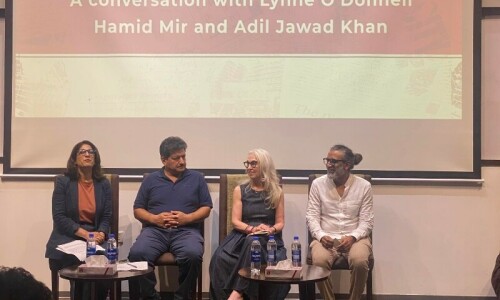
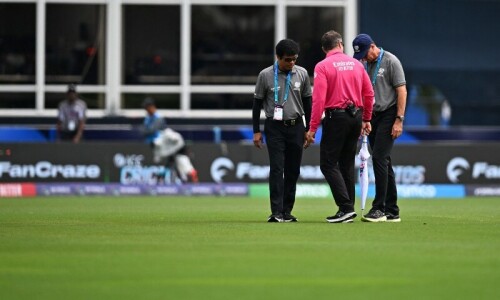

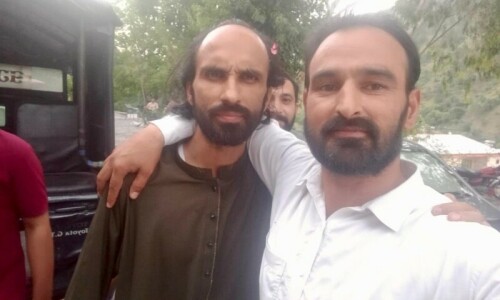
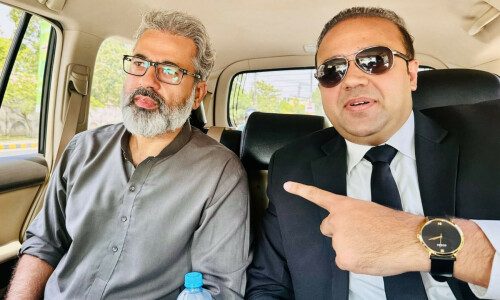
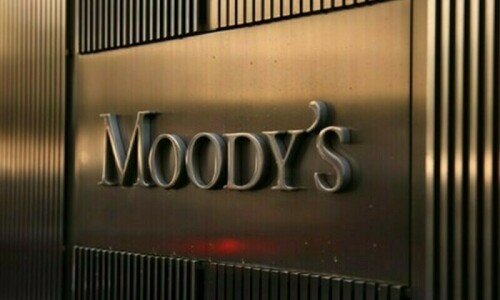























Dear visitor, the comments section is undergoing an overhaul and will return soon.